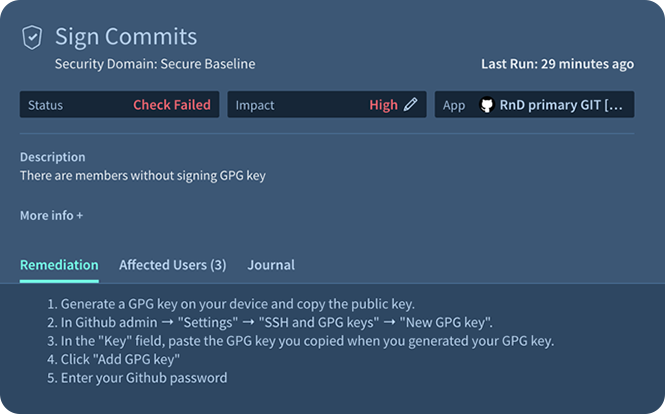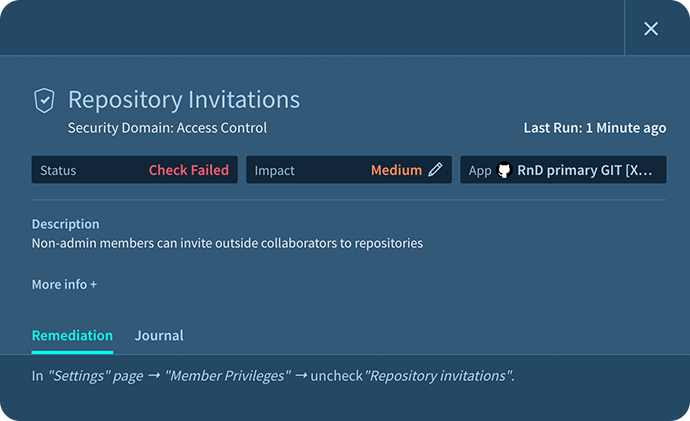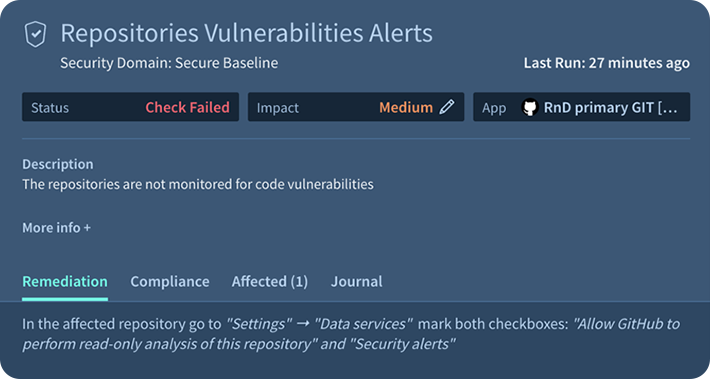How Adaptive Shield Helps Secure Github
GitHub embedded security directly into the developer workflow, making it easy to secure your application in minutes and comply with any industry standards. However, those security tools are unable to secure repositories if they aren’t configured correctly.
Adaptive Shield keeps Github secure by continuously reviewing security settings within GitHub, protecting it from threat actors looking to steal your code.
Harden Hygiene and Branch Protection

Limit Member Privileges

Detect Repository Vulnerabilities





























 ?>
?>